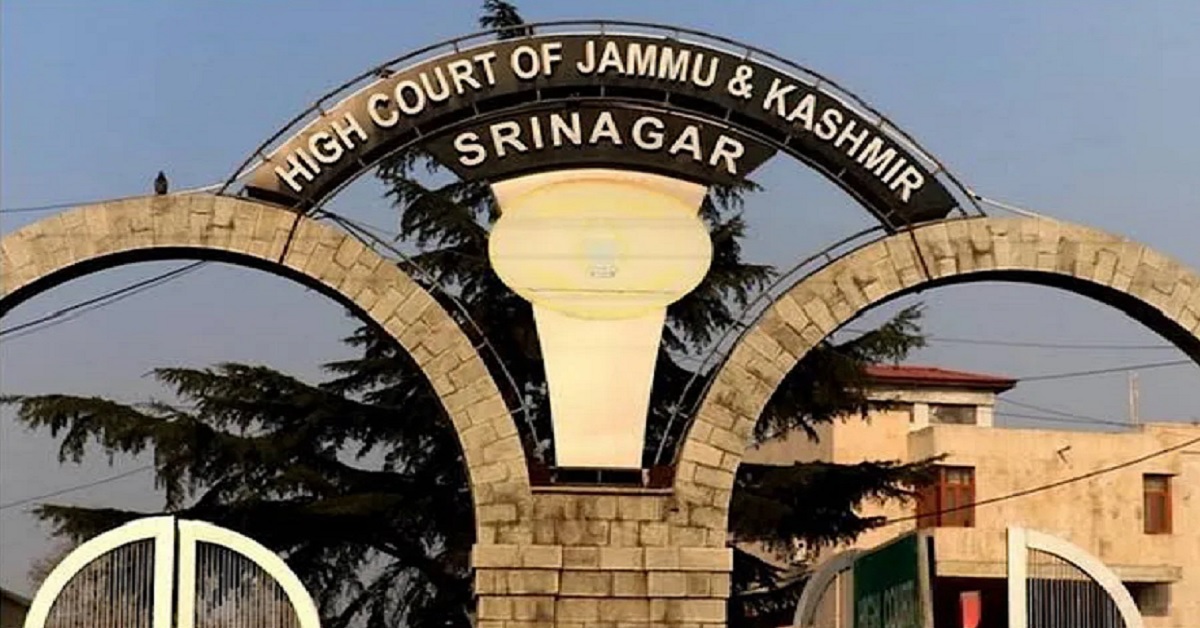In a powerful reaffirmation of constitutional compassion and the primacy of human rights, the High Court of Jammu and Kashmir and Ladakh has directed the Union Ministry of Home Affairs to repatriate Rakshanda Rashid, a 63-year-old woman who was deported to Pakistan following a counter-terrorism drive in the aftermath of the Pahalgam terrorist attack.
The Court, presided over by Justice Rahul Bharti, observed that Rashid’s deportation appeared arbitrary and in violation of her legal status as a Long-Term Visa (LTV) holder who had resided in India for nearly four decades. The matter came before the Court through a writ petition filed by her daughter, Falak Zahoor.
The petitioner’s husband, Sheikh Zahoor Ahmed, informed the Court that Rakshanda had no family or support in Pakistan and was suffering from multiple serious ailments. Her deportation, he submitted, had left her vulnerable, abandoned, and at grave risk.
The Court took serious note of these submissions, underscoring that in matters where human life and dignity are imperilled, the judiciary is obligated to act as a constitutional protector—even in the absence of a full adjudication on the merits.
“Human rights are the most sacrosanct component of a human life and, therefore, there are occasions when a constitutional court is supposed to come up with SOS like indulgence notwithstanding the merits and demerits of a case which can be adjudicated only upon in due course of time and therefore, this Court is coming up with a direction to the Ministry of Home Affairs, Government of India to bring back the petitioner from her deportation.” (Para 3)
Justice Bharti noted that at the time of her deportation, Rashid was a documented LTV holder—a status that ought to have protected her from arbitrary removal. Yet, without any formal deportation order or due process, she was allegedly “forced out” of the country as part of a broader post-carnage operation by government authorities.
“This Court is bearing in mind background that the reference that the petitioner was having LTV status at relevant point of time which per-se may not have warranted her deportation but without examining her case in better perspective and coming up with a proper order with respect to her deportation from the authorities concerned, still she came to be forced out.” (Para 4)
Referring to the “exceptional nature of facts and circumstances,” the Court issued extraordinary directions to the Ministry of Home Affairs:
“Given the exceptional nature of facts and circumstances of the case whereby the petitioner-Rakshanda Rashid wife of Sheikh Zahoor Ahmed has been purportedly deported to Pakistan in the recent drive undertaken by the Government of India post Pahalgam carnage, this Court is constrained to direct the Secretary, Ministry of Home Affairs, Government of India to retrieve the petitioner back to J&K, India so as to facilitate the reunion of the petitioner with her husband-Sheikh Zahoor Ahmed in Jammu.” (Para 5)
The Ministry has been given ten days from the date of the order (June 6, 2025) to ensure compliance. The matter is now listed for July 1, 2025, when a compliance report is to be submitted before the Court.
The order, marked by urgency and empathy, sets a significant precedent in cases involving the deportation of foreign nationals long-residing in India under legal permits. It highlights the responsibility of the state to uphold due process, especially when fundamental rights and humanitarian considerations intersect.
The complete order may be read below.
A judicial pushback amid rising arbitrary deportations
This order comes at a crucial moment. Across the country, particularly in the state of Assam, there has been a surge in the deportation of Bengali-speaking individuals, most of whom are Muslims, many of them declared “foreigners” by opaque and controversial Foreigners Tribunals. Numerous cases have been documented where individuals have been picked up and sent across the Bangladesh border without any written deportation order, legal representation, or family notification.
In several instances, courts and commissions have been bypassed altogether. Women, children, and elderly persons have been subjected to these clandestine removals, often despite having ongoing legal cases, bail orders, or valid documents. The pattern has alarmed civil liberties groups, who describe it as a systemic erosion of constitutional guarantees like due process, dignity, and the right to be heard.
Against this grim national backdrop, the Jammu & Kashmir High Court’s order stands out for upholding the principle that even those classified as “foreigners” or “non-citizens” are entitled to basic constitutional protections. The judgment affirms that deportation—when carried out without transparency, legal backing, or humanitarian consideration—amounts to a violation of both law and conscience.
This order sends a strong message: that constitutional protections do not end at the margins of nationality, and that humanitarian justice must prevail where executive action falters.
Related:

